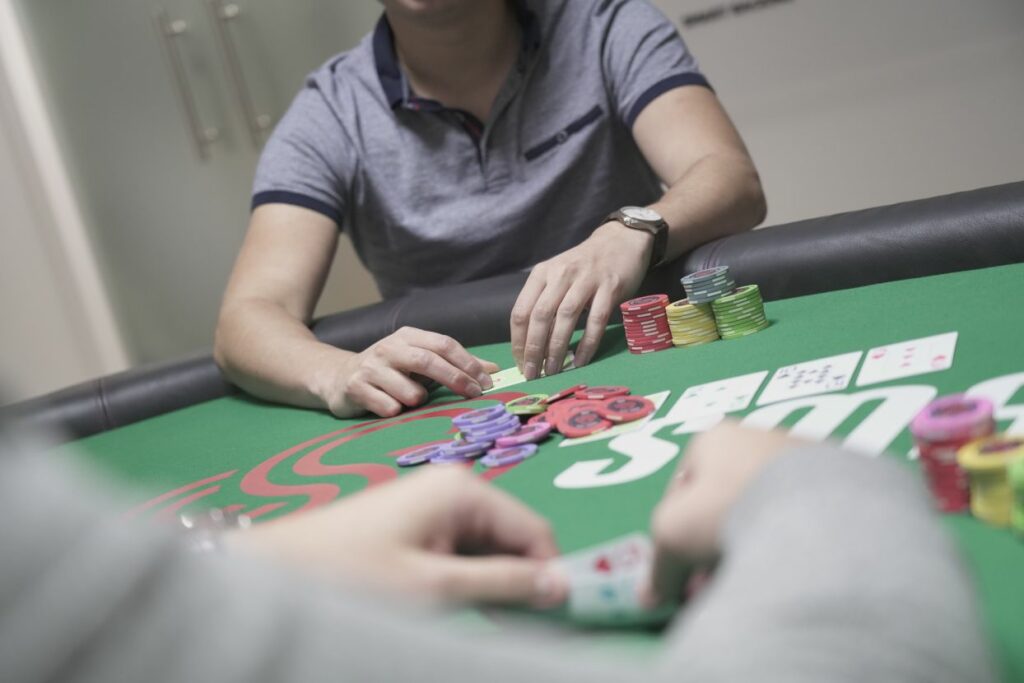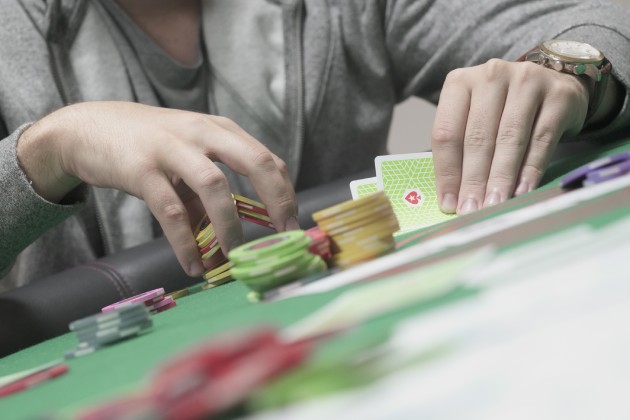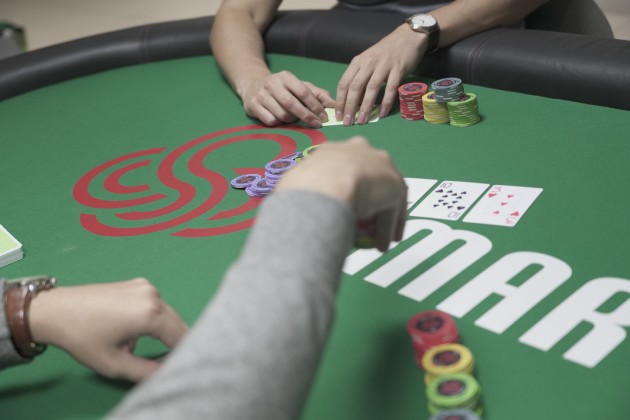This article will focus on why you should try to play in position as often as possible, how to achieve that, and how to capitalize on it.
But let’s start with the fundamentals.
What is a position in poker?
No matter how many players are playing, we can distinguish a few different positions at every poker table. There are the mandatory ones: the big blind, the small blind, and the button (if the game is a heads-up, the small blind is also on a button). Depending on the number of players, there are up to nine poker positions (luckily, the days of 10-handed poker are pretty much gone):
- Small Blind
- Big Blind
- Early position (Under the gun – UTG/UTG+1/UTG+2)
- Middle position (Lojack, Hijack)
- Late position (Cutoff, Button)

Poker positions are one thing, but what does being in position mean then? It indicates that post-flop, you are the last player to act. Given the order of every betting round, you can never be in position if you are on the small blind. When you are on the big blind, you can only have position over the small blind, up to the button, who always acts until after the flop has been dealt.
Being in position is a big deal in poker
There are a few factors that make being in position so vital. Let’s look at them.
You have more information than your opponents
Poker is a game of incomplete information, and every piece of information counts.
If you are the last to act during any betting round, you already know what your opponents have decided to do. That’s a huge advantage, and it drastically changes how the hand plays out – you have information that they did not have.
Let’s look into a simple example: you are on the big blind, an early position player has raised the cutoff and the button called. So did you, closing the action. You hold 98 in spades, and the flop is A62 with two spades. You have a flush draw, but you literally have close to no information about other people’s hands. There are many possible outcomes, so you’ll usually elect to check and see what the rest of the players will do.
When you have position you have more control over the pot
If, on the other hand, you are on the button with the same hand, and it’s your turn to act, it’s a whole different story. Three players checked to you, and it’s up to you whether you’d like to check and get to the turn, or bet, trying to fold out some of the opponents.
So, while in position, you decide whether you want to get a so-called “free card” and control the size of the pot or reopen the betting action.

It’s way easier to bluff while having position
It’s especially true on the river when out-of-position opponents have checked to you. If you were the preflop raiser and other players have only checked or check-called your bets, it’s unlikely that they have many strong hands in their range. After all, it’s up to you whether you bet the river or not, and if you choose to check back, that would be a disaster for any strong, slow-played hand.
However, if you’ve kept betting during the hand on every occasion, you can credibly represent strong hands with a chunky river bet, putting many opponents in a very tough spot.
To put it simply: at every point of the hand, your out-of-position opponents have to factor in that you will act last on the current street and the subsequent ones. And that’s quite a lot to consider.
Read the article: 5 tips to improve your game quickly.
The power of position in poker
Now, when you know how important is position, how can you incorporate it into your poker strategy? We’ve got three quick yet very useful tips for you:
Don’t play too many hands while in an early position
While all of the suited connectors and small pocket pairs are very tempting holdings to play, they may get you in a lot of trouble while opening them under the gun or at an early position. It holds true in both tournaments and in cash games. The earlier you are to act, the more likely it is that you’ll end up playing out of position against multiple opponents. That’s not easy and quite often you will be facing really tough situations, which could be avoided.
Unless you are playing against very bad and passive opponents, tight is right – do not open too loose if you have a whole table to act after you. If you’re dealt a marginal holding on early position, take your time and assess if that’s the table you want to open this particular hand.
Don’t defend big blind with any two hands
If you play live, you’ll quite often hear people at the poker table admitting that they defend big blind with “any two” due to the great odds they’re getting. While the odds part is mostly true, they do not consider other important factors.
Think about it. If you defend every hand possible, you will be playing A LOT of the time out of position with terrible hands, and frequently you’ll end up flopping second or third pair with no kicker. In such situations, you’ll either have to fold or put chips into the pot, which would be very hard to win. Trust us, these spots are nasty but, at the same time, easy to avoid.
Bet aggressively into passive opponents on favorable boards
If you were the preflop raiser and the board is broadway heavy (like AKTJA) or disconnected and dry (like AA267), you may be very aggressive, as you can have and credibly represent a lot of hands that your opponent will seldom have (since they’ve only called you preflop).

Learn how to take advantage of position in Spin & Go’s
Of course, spin and go’s play out differently than other poker formats but position always matters, whether we talk MTTs, cash games, or Spins.
We know how to teach you to utilize it to the maximum. We’ve also got a few tricks for out-of-position plays. If you want to learn the best poker strategy for Spins & Go’s and take your overall level of poker understanding to the next level, try our offer for 30 days free.
